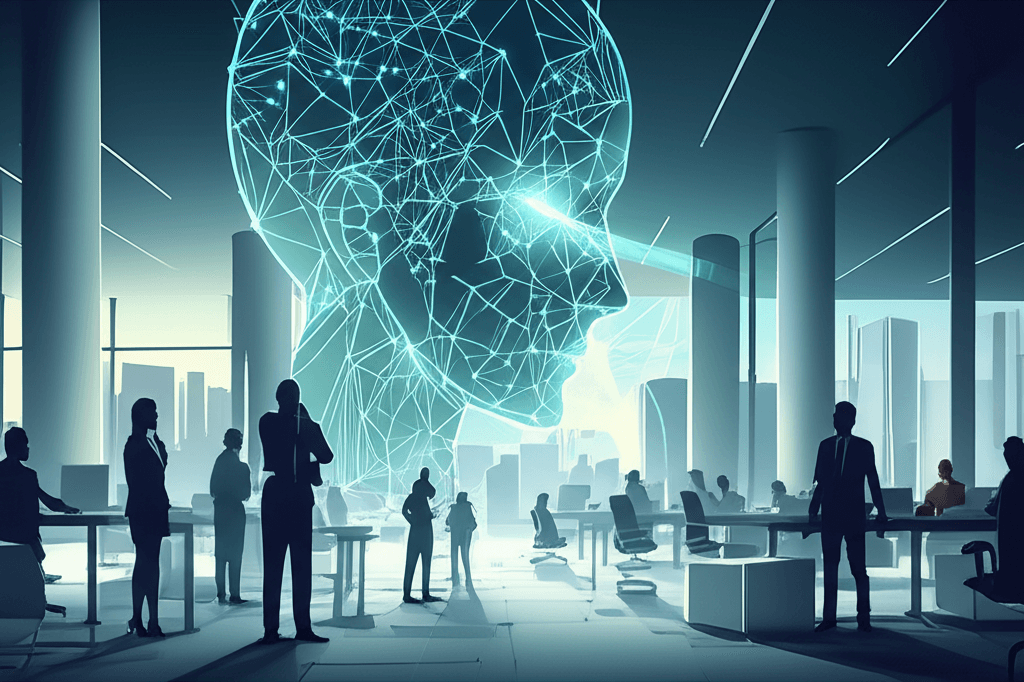Anthropic CEO: AI Will Eliminate Half of White-Collar Jobs Soon
Anthropic's CEO warns of rapid AI job loss, pushing for transparency and a novel "token tax" to prepare society.
May 30, 2025

Dario Amodei, the CEO of AI research company Anthropic, has issued a stark warning about the potential for artificial intelligence to cause widespread job displacement in the near future. Amodei predicts that AI could eliminate as much as half of all entry-level white-collar jobs and drive unemployment to rates between 10 and 20 percent within the next one to five years.[1][2][3][4][5] He has called for increased transparency from AI companies and the government about these impending changes, emphasizing that many workers are unaware of the scale of disruption.[1][6] Amodei believes the shift from AI augmenting human jobs to fully automating them could begin in as little as two years.[1]
Amodei’s predictions center on the rapid advancement of AI capabilities, particularly in performing intellectual tasks currently handled by humans in entry-level white-collar roles.[7][8][9] He highlighted sectors such as technology, finance, law, and consulting as being particularly vulnerable to these AI-driven job losses.[2][10][5] This displacement, he argues, could happen quickly, catching many by surprise.[10] Anthropic, which develops the AI model Claude, has itself noted a shift in how its tools are being used, with a growing percentage of users applying AI for full automation rather than simply augmenting existing jobs.[7] Amodei suggests a future scenario where significant societal advancements, like curing major diseases and robust economic growth, could coexist with high unemployment.[1][2][4] He stated, "Cancer is cured, the economy grows at 10% a year, the budget is balanced — and 20% of people don't have jobs."[1][2][4]
To address the potential negative economic consequences of widespread AI adoption, Amodei has proposed a novel solution: taxing AI responses, or a "token tax."[10][11][12][13][14] This proposal involves levying a small tax on each unit of language, or "token," processed by powerful AI models.[13] Given the vast number of tokens AI systems process, even a modest tax could generate significant revenue.[13] Amodei suggests this revenue, potentially 3% of an AI firm's earnings from model usage, could be redistributed by the government to support displaced workers through initiatives like job retraining programs or a broader social safety net, possibly including universal basic income.[10][11][13][14] He acknowledges that proposing such a tax is not in his direct economic interest but believes it's a necessary consideration for societal stability.[7][11]
The concerns voiced by Amodei are not entirely isolated, though the severity and timeline of his predictions are among the more alarming. Some industry observers and reports echo the sentiment that AI will significantly reshape the labor market.[15][7][16] For instance, a World Economic Forum report indicated that 41% of employers globally expect to reduce their workforce by 2030 due to AI automation, and that nearly half of organizations anticipate reorienting their business models toward new AI-driven opportunities.[15][7][16] Historically, technological advancements have led to workforce upheaval, with some jobs disappearing and new ones emerging.[1] However, the speed and scale of AI's potential impact on white-collar professions, traditionally seen as more insulated from automation, is a key point of concern.[17][3][18] Some economists remain more skeptical of such drastic, near-term job losses, pointing out that current data hasn't shown significant AI-driven unemployment or earnings changes in most occupations.[15] They argue the labor market tends to adapt over time.[15]
Amodei's call for transparency and proactive measures extends to policymakers and the AI industry itself.[2][6][11] He has expressed concern that lawmakers may be uninformed or in denial about the scale of the looming labor transformation, while corporate leaders may be hesitant to speak openly about potential job cuts.[2] Anthropic has taken steps to increase awareness by launching an "Economic Index" and an advisory council to monitor and explain how AI affects different occupations.[1][11][14] The company has also emphasized its commitment to AI safety, a core tenet since its founding by former OpenAI employees who reportedly left due to safety and ethical concerns.[19][20][21] Amodei has stressed the obligation of AI producers to be honest about the technology's potential impacts, both positive and negative.[15][6][11] He believes that while competitive pressures make it difficult for developers to slow down AI advancement, proactive societal preparation is crucial.[1] This includes boosting AI literacy, encouraging individuals to reconsider career paths away from easily automatable fields, and equipping public officials with a deeper understanding of AI to inform policy.[1] The debate around AI's impact on employment also touches on broader economic issues, such as the potential for increased income inequality if the benefits of AI accrue primarily to capital owners and highly skilled workers.[22][23][24][25] The feasibility and effectiveness of proposed solutions like a token tax are also subjects of ongoing discussion, with complexities around definition, enforcement, and potential impacts on innovation.[23][24][26][27][28]
In conclusion, Dario Amodei's prediction of up to 20% unemployment within five years due to AI wiping out a significant portion of entry-level white-collar jobs serves as a stark warning to society.[1][2][3][4][5] His proposal to tax AI responses aims to mitigate the potentially severe economic and social consequences of such a rapid transformation.[10][11][12][13][14] While the exact extent and timeline of AI's impact on employment remain debated, Amodei's intervention has intensified the conversation around the urgent need for proactive strategies, increased awareness, and responsible development within the AI industry to navigate the profound changes ahead.[1][2][25] His call for honesty from AI developers and preparedness from governments and individuals underscores the significant societal adjustments that may be necessary in an increasingly AI-driven world.[1][6][11]
Sources
[1]
[2]
[6]
[8]
[9]
[10]
[12]
[15]
[16]
[18]
[19]
[20]
[21]
[22]
[23]
[24]
[25]
[26]
[27]
[28]